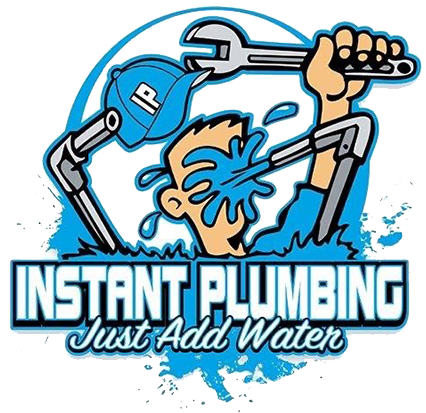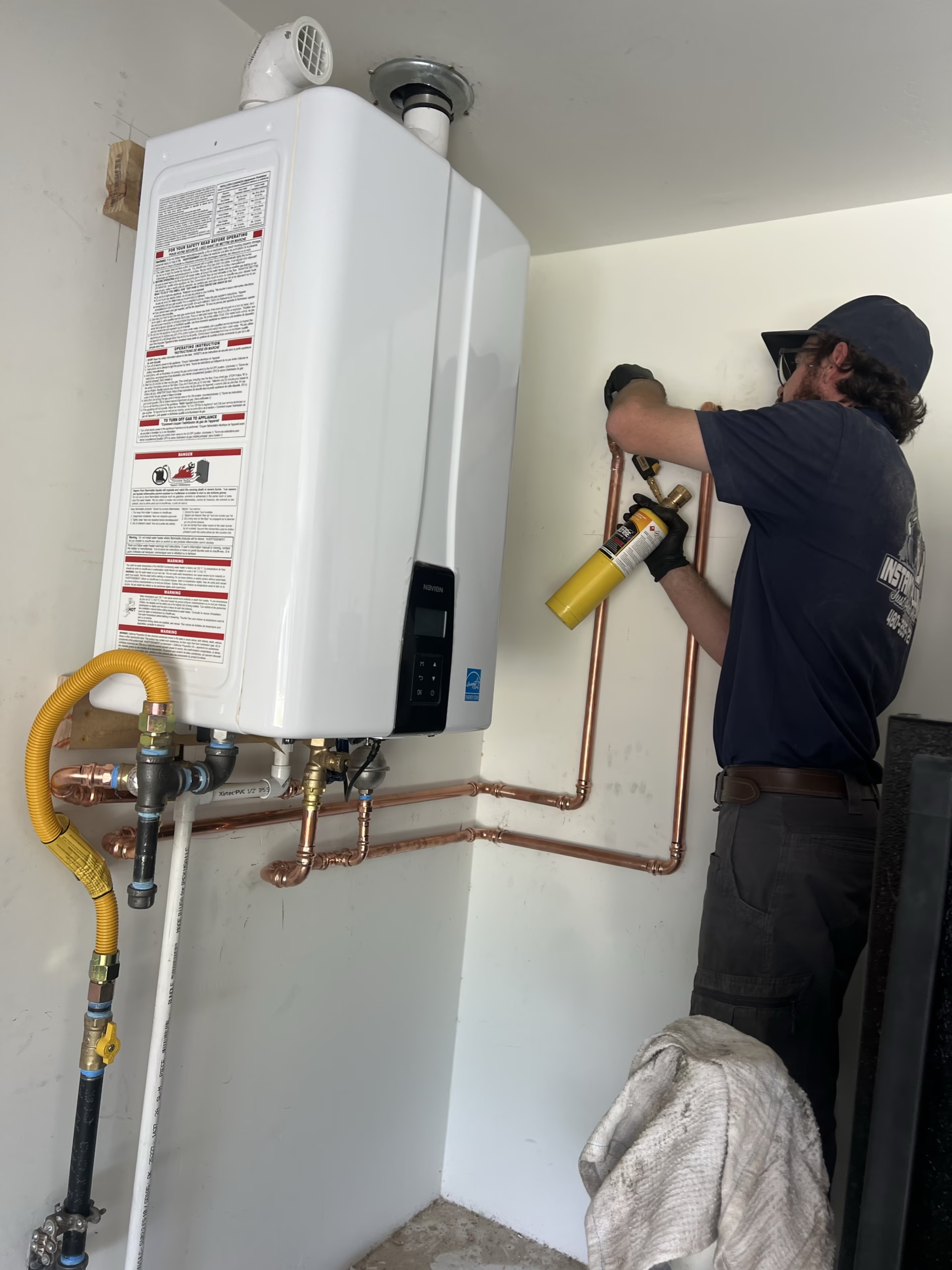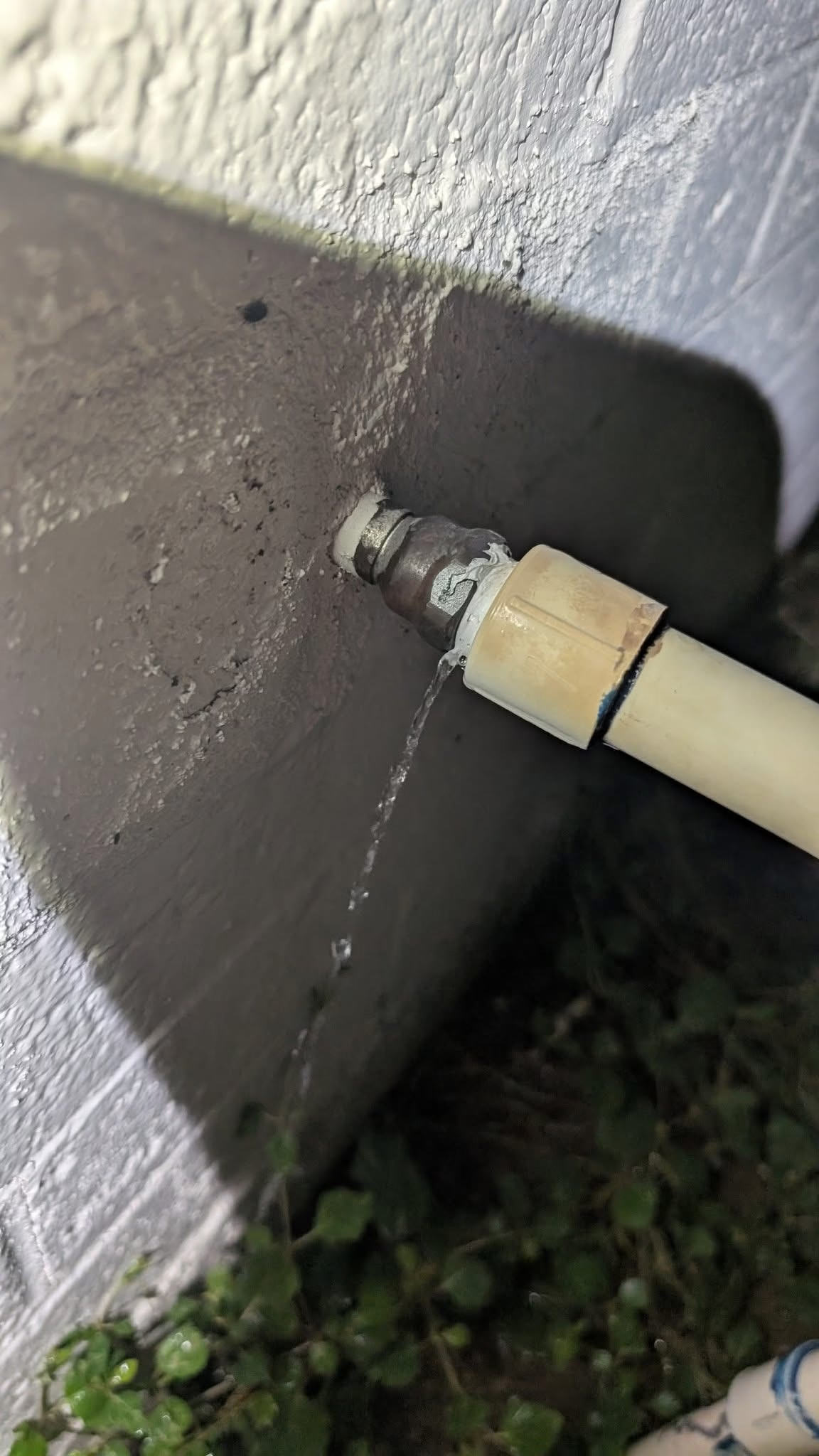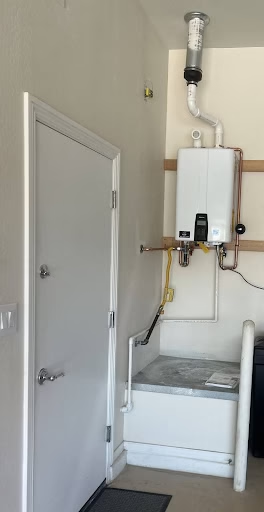You wake up, ready for a warm shower to start your day, only to be met with an icy blast. Or maybe you’re washing dishes, and suddenly, the water turns lukewarm. Or worse, you discover a mysterious puddle spreading across your garage floor, and you quickly realize it’s coming from that big tank in the corner. That feeling? It’s a mix of dread, frustration and a sinking feeling in your stomach. You depend on hot water for so much – washing, cleaning, comfort – and when it’s gone, your whole day can feel thrown off balance. You might be wondering, “Is it broken for good? How much will this cost? Who can I even call in Buckeye who really knows water heaters?”
We completely get it. Here at Instant Plumbing, serving homeowners across Glendale, Phoenix, Scottsdale, Peoria, Mesa, Tempe, Chandler, and of course, Buckeye, since 2001, we’ve heard countless stories just like yours. We know how much you rely on a steady supply of hot water and how stressful it can be when your water heater acts up or quits altogether. You work hard to keep your home comfortable and running smoothly, and a water heater problem can make you feel helpless. You might even worry about the safety of your family or the extent of potential water damage. Rest assured, you’re not alone, and we’re here to explain everything you need to know about your home’s hot water heart. We might not be the biggest firm, but we’re obsessed with making sure you get the right advice and the perfect solution for your unique needs.
Understanding Your Water Heater: Types and How They Work
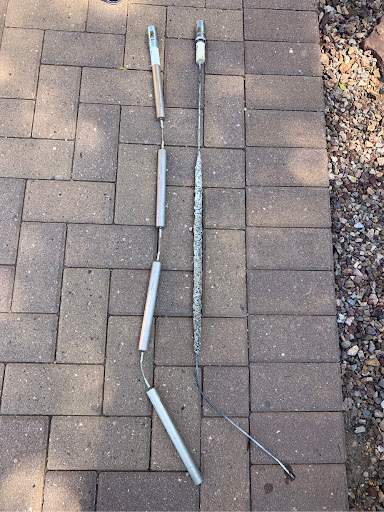

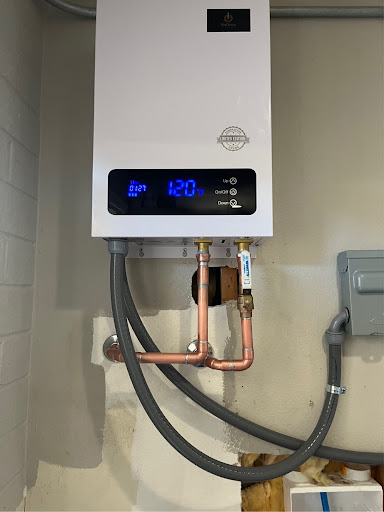
Before we dive into problems and fixes, let’s understand the different types of water heaters you might find in Buckeye homes and how they do their important job of making your water nice and warm.
Traditional Tank Water Heaters
When most people think of a water heater, they picture a large, upright tank. These are what we call traditional tank water heaters and they’re still very common.
How Tank Water Heaters Provide Hot Water
A traditional tank water heater works a bit like a giant kettle. It stores a large amount of water, heats it up using either natural gas, propane or electricity, and then keeps it warm until you need it. When you turn on a hot water tap, the hot water is drawn from the top of the tank, and cold water flows in at the bottom to be heated. It’s a simple and reliable system that has been around for a long time. The heating element or burner kicks on when the temperature inside the tank drops below a certain point, ensuring a consistent supply of hot water is ready to go.
Common Sizes and Capacities for Buckeye Homes
Tank water heaters come in various sizes, typically measured in gallons, like 40, 50 or even 80 gallons. The right size for your Buckeye home depends on how many people live there and how much hot water your family uses. A small household might be fine with a 40-gallon tank, while a larger family with multiple bathrooms might need a 50 or 80-gallon unit to avoid running out of hot water during busy times. Choosing the right size is important so you don’t run out of hot water halfway through a shower.
Pros and Cons of Tank Water Heaters
Traditional tank water heaters are generally more affordable to buy and install upfront. They are also straightforward to maintain and repair. However, they continuously heat and store water, even when you’re not using it, which can be less energy-efficient. They also have a limited supply of hot water – once the tank is empty, you have to wait for it to refill and reheat, which can take a while. And, as you probably know, they can leak when they get old.
Tankless Water Heaters: On-Demand Hot Water
Tankless water heaters are the sleek, modern alternative to traditional tanks. They’ve become quite popular in Arizona for a good reason!
How Tankless Systems Deliver Endless Hot Water
Unlike tank water heaters, tankless models don’t store water. Instead, they heat water on demand as it flows through a powerful heating coil. When you turn on the hot water, cold water enters the unit, is quickly heated by a gas burner or electric element, and then flows directly to your faucet. This means you get a continuous supply of hot water for as long as you need it, which is pretty amazing when everyone wants to shower at once!
Gas vs. Electric Tankless Options
Tankless water heaters come in two main types: gas (natural gas or propane) and electric. Gas tankless water heaters are generally more powerful and can heat water faster, making them suitable for whole-home applications, especially for larger families. They require proper ventilation. Electric tankless water heaters are usually smaller and easier to install since they don’t need gas lines or venting, but they typically have lower flow rates, meaning they might only be able to supply hot water to one or two fixtures at a time. The best choice for your Buckeye home depends on your hot water needs and existing utility connections.
Benefits and Considerations for Tankless in Buckeye
The biggest benefit of tankless water heaters is that they provide an endless supply of hot water – no more cold showers! They are also much more energy-efficient because they only heat water when you need it, potentially saving you money on utility bills. Plus, they are very compact, saving valuable space in your garage or utility closet. The main considerations are their higher upfront cost and the need for proper sizing and venting (especially for gas models).
Hybrid Water Heaters: Energy-Efficient Solutions
Hybrid water heaters are like the best of both worlds, combining features from both tank and tankless models.
Combining Technologies for Optimal Performance
A hybrid water heater typically combines a traditional storage tank with a heat pump technology. Instead of directly heating the water with electric elements or gas burners all the time, the heat pump pulls heat from the surrounding air and transfers it to the water in the tank. This makes them incredibly energy-efficient, similar to how your home’s air conditioner works in reverse. They use a small amount of electricity to move heat, rather than generating it directly.
When a Hybrid Water Heater Makes Sense
Hybrid water heaters are an excellent option for homeowners looking for significant energy savings. They are often a good fit for larger homes or families where hot water demand can fluctuate. However, they do need enough clear space around them to draw in air, so they’re usually installed in areas like a garage or basement where there’s plenty of room and a stable ambient temperature. They offer a great balance of hot water availability and energy efficiency for Buckeye residents.
Common Water Heater Problems Buckeye Homeowners Face
Even the best water heaters can run into trouble. Knowing what signs to look for can help you catch problems early and prevent bigger headaches.
No Hot Water or Not Enough Hot Water
This is perhaps the most frustrating water heater problem. When you turn on the tap and nothing but cold water comes out, it’s a clear sign something is wrong.
Pilot Light or Heating Element Issues
For gas water heaters, a common culprit for no hot water is a extinguished pilot light. This tiny flame ignites the main burner, and if it’s out, the water won’t heat up. For electric water heaters, a faulty heating element (they usually have two: one upper and one lower) or a tripped breaker can prevent the water from getting hot. These are issues that a qualified plumber can quickly diagnose and fix.
Thermostat Problems and Electrical Connections
The thermostat on your water heater controls the water temperature. If it’s set too low, or if it’s malfunctioning, you might not get hot enough water. Sometimes, a loose or corroded electrical connection can also prevent the thermostat or heating elements from working correctly, leading to a lack of hot water. These are not DIY fixes and require a professional to handle safely.
Leaking Water Heater: A Serious Concern
A leak from your water heater is always a cause for concern and needs immediate attention.
Understanding Tank Leaks and Their Causes
The most serious type of leak comes from the water heater tank itself. Over time, sediment buildup at the bottom of the tank, combined with the constant heating and cooling, can cause the metal to expand and contract, leading to tiny cracks or corrosion. Once the tank itself is leaking, it usually means the water heater needs to be replaced, as repairs to the tank are rarely possible or cost-effective. These leaks can cause significant water damage to your garage, basement or home if not addressed quickly.
Pressure Relief Valve Issues
Your water heater has a very important safety device called the Temperature and Pressure Relief (T&P) valve. This valve is designed to open and release water if the temperature or pressure inside the tank gets too high, preventing a dangerous explosion. If you see water regularly dripping or flowing from this valve, it could be a sign of excessive pressure in your tank (due to a faulty thermostat or high incoming water pressure) or a problem with the valve itself. This should be checked by a professional immediately.
Strange Noises From Your Water Heater
Water heaters usually make some gentle noises, but loud or unusual sounds can be a sign of trouble.
Rumbling, Popping or Sizzling Sounds Explained
These noises are often caused by sediment buildup at the bottom of a tank water heater. As water is heated, minerals like calcium and magnesium separate and settle at the bottom of the tank, forming a hard layer. When the heating element or burner heats this layer, trapped water underneath can turn to steam and escape, causing a rumbling or popping sound. This sediment reduces efficiency and can damage the tank over time. Sizzling sounds often indicate a small leak dripping onto a hot surface.
Sediment Buildup as a Culprit
Sediment buildup isn’t just noisy; it reduces your water heater’s efficiency, making it work harder and use more energy to heat water. It also shortens the lifespan of your unit. This is why regular maintenance, like flushing the tank, is so important, especially in areas with hard water like Buckeye.
Smelly or Discolored Hot Water
Hot water should be clear and odorless. If yours isn’t, your water heater might be the source.
Bacterial Growth and Anode Rod Issues
If your hot water smells like rotten eggs, it’s usually due to sulfur-reducing bacteria growing inside the water heater tank. This often happens when the sacrificial anode rod (a metal rod inside the tank designed to prevent corrosion) reacts with sulfates in the water and certain bacteria. Replacing the anode rod with a zinc or aluminum/zinc alloy one, and flushing the tank, can often solve this.
Sediment and Rust Concerns
Discolored hot water, especially brownish or reddish water, often indicates rust inside the tank or your pipes. If the discoloration only appears when you run hot water, it’s likely coming from your water heater. This could be a sign that the inside of your tank is corroding, which means a replacement might be needed soon. Sediment, stirred up from the bottom of the tank, can also cause cloudy or murky hot water.
Essential Water Heater Services for Buckeye Homes
Dealing with water heater issues can be stressful, but knowing the professional services available can help you feel more in control.
Professional Water Heater Installation
Whether you’re replacing an old unit or installing a new one, professional installation is key to avoiding future problems.
Why Expert Installation Prevents Future Problems
Water heater installation is not a DIY job. It involves working with gas lines, electrical connections, water lines and venting – all of which can be dangerous if not handled correctly. A professional plumber ensures all connections are secure, that the unit is properly sized for your home, and that all local building codes are met. Incorrect installation can lead to leaks, inefficient operation and even carbon monoxide leaks with gas models. An expert install means your unit will run safely and efficiently for years.
Ensuring Proper Sizing and Code Compliance
Sizing a water heater correctly is crucial for performance and energy efficiency. Too small, and you’ll run out of hot water; too large, and you’re wasting energy. Our plumbers help you select the ideal size and type (tank, tankless, hybrid) based on your family’s usage and your home’s layout. We also ensure your installation complies with all Buckeye and Arizona plumbing codes, which are in place for your safety and to ensure efficient operation.
Removal and Disposal of Old Units
Part of a complete professional installation service includes the safe removal and proper disposal of your old water heater. These units are heavy and often contain rust and sediment. We handle all the heavy lifting and ensure your old unit is disposed of responsibly, saving you the hassle and potential back pain.
Timely Water Heater Repair and Troubleshooting
When your hot water isn’t quite right, timely repair can save you money and extend the life of your unit.
Diagnosing Common and Complex Issues
Our skilled plumbers are experts at diagnosing water heater problems. From a simple pilot light relight to complex electrical issues or tank problems, we have the tools and experience to pinpoint the exact cause of your hot water problem. We don’t just guess; we use our knowledge to get to the root of the problem quickly and accurately.
Replacing Components: Elements, Thermostats, Valves
Many water heater problems can be fixed by replacing specific parts. This could include:
- Heating elements (for electric models)
- Thermostats (to control temperature)
- Pilot light assemblies or thermocouples (for gas models)
- Temperature and Pressure (T&P) relief valves (safety devices)
- Drain valves (for flushing)
Our team carries common replacement parts, allowing us to often complete repairs on the first visit.
Regular Water Heater Maintenance and Tune-Ups
Preventative maintenance is the best way to extend your water heater’s life and avoid unexpected cold showers.
The Importance of Flushing Your Tank Water Heater
For traditional tank water heaters, flushing the tank annually is incredibly important. This process drains the tank, removing the sediment that accumulates at the bottom. As we learned earlier, sediment reduces efficiency, causes noise, and can lead to premature tank failure. A proper flush helps your water heater run more efficiently and last longer.
Inspecting Components for Wear and Tear
During a maintenance visit, our plumbers will inspect all key components of your water heater, including the anode rod, T&P valve, gas lines, electrical connections and vents. We look for any signs of wear, corrosion or potential problems that could lead to bigger issues down the line or any safety concerns. Catching small problems early can save you from costly repairs or even a full replacement.
Benefits of Routine Maintenance for Longevity and Efficiency
Regular maintenance for your water heater offers many benefits:
- Extended lifespan: Helps your water heater last years longer.
- Improved efficiency: Reduces energy consumption, saving you money on utility bills.
- Reliable hot water: Minimizes the chance of unexpected breakdowns.
- Safety: Ensures all safety features are working correctly.
Think of it like getting your car’s oil changed – it keeps things running smoothly and prevents major issues.
Budgeting for Your Water Heater Investment
A new water heater is an investment in your home’s comfort and functionality.
Upfront Costs vs. Long-Term Savings
It’s important to look beyond just the purchase price. While a traditional tank water heater might be cheaper to buy and install, a high-efficiency tankless or hybrid unit could save you significantly more money on energy bills over its lifespan, leading to a lower total cost of ownership. We can help you understand the long-term value of each option.
Potential Rebates and Incentives
Sometimes, local utility companies or government programs offer rebates or incentives for installing high-efficiency water heaters. It’s worth checking to see if there are any available programs in Buckeye or Arizona that could help offset the cost of an energy-efficient upgrade. We can often guide you to resources that list these opportunities.
Why Choose Instant Plumbing for Your Buckeye Water Heater Services?
When it comes to something as important as your water heater, you want a team you can trust.
Local Expertise and Understanding of Buckeye’s Plumbing Needs
We’ve been serving Buckeye and the surrounding Valley communities since 2001. This means we understand the unique plumbing challenges and water conditions specific to our desert climate, including how they affect water heaters. We’re not just any plumbers; we’re your neighbors, deeply familiar with the homes and water systems in the area.
Commitment to Quality Workmanship and Customer Satisfaction
At Instant Plumbing, our obsession is customizing our services to fit our clients’ needs, and that means doing the job right the first time. We pride ourselves on clear communication, honest assessments and meticulous workmanship. Our goal isn’t just to fix your water heater; it’s to ensure you’re completely satisfied and that your hot water system is reliable for years to come.
Don’t let water heater worries leave you in the cold. Whether you’re dealing with a leaky tank, planning an upgrade or just need routine maintenance, Instant Plumbing is your reliable plumber in Buckeye. We’re here to provide expert advice, professional service and peace of mind. Reach out to us today – let’s get that hot water flowing!
Frequently Asked Questions
Q: How often should I flush my traditional tank water heater?
A: Most manufacturers and plumbers recommend flushing your traditional tank water heater at least once a year to remove sediment buildup, which helps improve efficiency and extend its lifespan.
Q: Can I convert my electric water heater to a gas water heater?
A: Converting from electric to gas is possible, but it’s a significant project. It requires installing a gas line to the water heater location and proper venting, which can be costly and requires professional plumbing and gas line expertise.
Q: How do I know if my water heater needs to be repaired or replaced?
A: If your water heater is older than 8-10 years, frequently needs repairs, is leaking from the tank itself, or isn’t providing enough hot water despite maintenance, it’s often more cost-effective to replace it. A professional plumber can help you assess the best option.
Q: Do tankless water heaters save a lot of money on utility bills?
A: Tankless water heaters can be very energy-efficient because they only heat water on demand, eliminating standby heat loss. While the energy savings vary by household and water usage, many homeowners see a reduction in their energy bills, especially if they replace an older, inefficient tank unit.
Q: What is the average lifespan of a water heater?
A: A traditional tank water heater typically lasts between 8 to 12 years. Tankless water heaters generally have a longer lifespan, often lasting 15 to 20 years or more with proper maintenance.
